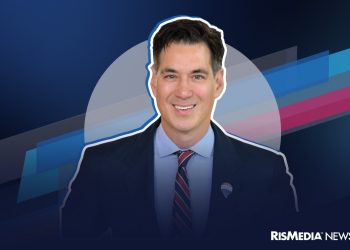RISMEDIA, February 24, 2009-(MCT)-Bernhard Erb, of Monroeville, and his family are conserving electricity by unplugging appliances. Saving more money and paying off debt has driven the Erb family to make a habit of unplugging all electronics they aren’t using in their home.
“Anytime I want to use my coffee pot, I have to plug it back in,” said Bernhard Erb, 44, of Monroeville.
Almost every gadget that plugs in nowadays has a clock or other display element that constantly uses power, and the costs can add up as the gadgets and their usage adds up.
For a family of four that used to burn every light in the house-sometimes when they weren’t even at home-the simple cost-cutting measure reflects a mindful effort to scale back in their own household, but also highlights a much larger cultural shift to a more frugal lifestyle.
As more people worry about the security of their jobs and agonize over their investment losses, they are spending less and trying to stretch every dollar as far as it can go, by clipping coupons; eliminating restaurants, movies and vacations; and combining errands to save gas.
Even the wealthy are cutting back on extravagant spending and are downplaying their affluence, said Paul Brahim, a wealth adviser Downtown at BPU Investment Management, whose average client has $1 million in investments.
“I have a number of clients who prior to this year have never set foot in Wal-Mart and they are finding it a great place for value,” Brahim said.
“When some people come in now, I’ll compliment their suit, and there was a day when they’d tell me it’s from Brooks Brothers or Jos. Bank, and now they’re saying T.J. Maxx. They’re making jokes about it, but they’re thinking very clearly about how they spend their money.”
Erb said when he told his wife and their two teenage children in November that he wanted all lights turned off in rooms they weren’t using and all unused appliances unplugged, they weren’t sure how serious he was. It has become a way of life for all of them.
“When we started doing this, everyone in the family thought I was crazy, because I was the worst offender,” he said. “I left every light on in the house. I used to have no care about lights.
“Part of it had to do with trying to save money to put more toward debt repayment,” he said, adding that his family also got rid of one car and turned the heat down to 65 degrees.
Tom Davis, a postal worker who lives in Bellevue, said rising fuel prices led him to donate his 1995 Ford station wagon to charity in November. He figured it was way cheaper for him to ride the bus than pay for insurance, maintenance, taxes and gas.
“I don’t do movies either,” Mr. Davis said. “I don’t even rent them anymore. It’s all about the money. Everything is going up, and my income isn’t.”
He saves the money he used to spend going out to dinner and for meals at fast-food restaurants. And he shops at the dollar store for all his household items such as soap, detergents, cleaners, plates and plastic forks.
Through years of reckless spending spurred by an avalanche of easy credit and an insatiable taste for luxury, the savings rate in this country hovered near zero. In December, it climbed to 3.6%, according to the U.S. Commerce Department’s Bureau of Economic Analysis.
The days of easy credit seem to be over as well. Home equity loan approvals have become trickier to obtain now that home values are harder to peg and more homeowners owe more on their homes than they own.
Jobs also were lost last year at an alarming rate-2.6 million-and economist are predicting at least as many will be shed this year.
But despite all the signs of consumers hunkering down to ride out what some are calling the worst economic downturn since the Great Depression, Linda Duessel, an equity market strategist with Federated Investors, Downtown, does not believe thrift will become the new normal.
“Our parents were frugal because they lived through the Great Depression,” Duessel said. “People from the baby boomer generation and even Generation X who have only known increasing amounts of debt and new bubbles to exploit are shell-shocked at the moment. But as time passes, our demand is becoming pent up.
“Once we feel our jobs are safe again, I believe we’ll be shopping again in earnest to the extent we can find funds.”
A national survey on financial behaviors conducted last month by First Command Financial Services in Fort Worth, Texas, suggested American families are moving into the new year with a newfound commitment to cutting household expenses and saving money.
Fifty-four percent of those surveyed said they were spending less on leisure activities, 48% are cutting utility bills, 40% are increasing coupon use, 46% are shopping at discount stores, 39% are buying generic products and 38% canceled or postponed the purchase of big-ticket items.
“The biggest issue we have in our economy is spending, and this shows us that at least some people are getting it. They are controlling their spending, and they are saving their money,” said Luis Muniz, a senior manager at First Command in Boiling Springs, Cumberland County.
But Muniz also is convinced the penny-pinching habits many consumers are practicing now in reaction to their fears and anxieties will be short-lived at best. “To say it will be a permanent change is foolish,” he said. “As soon as people start getting comfortable again, they’ll start spending again.”
Copyright © 2009, Pittsburgh Post-Gazette
Distributed by McClatchy-Tribune Information Services.










